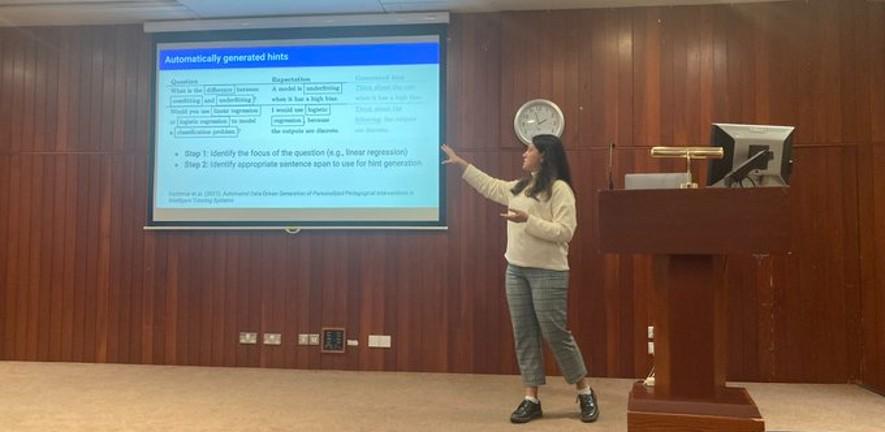
Submitted by Jane Durkin on Thu, 03/11/2022 - 13:11
How can people with diverging views be supported to successfully communicate and negotiate?
This ‘moonshot’ question was the focus of Deliberation4Good, a workshop co-supported by the Language Sciences Workshop Fund and ‘Opening Up Minds’, and which took place on 14th October at Fitzwilliam College, Cambridge.
The ‘moonshots’ are ambitious questions developed as part of Cambridge Language Sciences’ strategy to address large-scale challenges of societal importance relating to language research. The Cambridge Language Sciences Workshop Fund offers support for interdisciplinary workshops which contribute to the development of new research activity linked to one of the ‘moonshot’ questions.
The workshop was convened by Andreas Vlachos, Professor of Natural Language Processing and Machine Learning at the University of Cambridge, and Tom Stafford, Lecturer in Psychology at the University of Sheffield, with Georgi Karadzhov, Christine De Kock and Youmna Farag from Cambridge's Department of Computer Science and Technology.
The event brought together researchers from psychology, social, political and computer science, and others to collaborate and share their research. The aim was to explore how we can use existing and emerging techniques and technologies of argumentative communication make better decisions.
New digital technologies like social media, natural language processing and machine learning are disrupting old forms of communication and opening new possibilities for how we interact.
At the same time, technologies which support better argument production, exchange and comprehension have great potential in understanding how we can make better decisions, and enhancing personal, educational and workplace environments where argument exchange can boost productivity and wellbeing.
Georgi Kardzhov said: “The DElibot should be able to improve a conversation, not by sourcing the answer from whatever knowledgebase it can access, but actually by facilitating good discussion for the rest of the group. Everything is behind asking good questions. Our strong belief is that asking the right questions at the right time is what can improve a conversation greatly.”
The workshop featured keynotes from Jon Roozenbeek, British Academy Postdoctoral Fellow at the Cambridge Social Decision-Making Lab; Maria Liakata, Professor in Natural Language Processing (NLP) at Queen Mary University, London; Sacha Altya, a postdoctoral research fellow working on misinformation and (mis)trust in the news at the University of Oxford; Ekaterina Kochmar, Lecturer at the Department of Computer Science of the University of Bath; and Shauna Concannon Assistant Professor in Computer Science and Digital Humanities at Durham University.
They covered topics from how to build resilience against misinformation, to the benefit of deliberation for education applications and the interactive dynamics that underpin deliberative dialogues.
There were also project talks from Paul Piwek on ‘Opening Up Minds’, Dongwon Lee on ‘Collaborative Human Detection of Deepfake Texts’, Georgi Karadzhov on ‘DEliberation Enhancing Bots’ and Ruurd Oosterwoud on ‘Next generation solutions to disinformation’.
The day-long workshop ended with a poster session and an evening social event. The hope is that this will become a regular event that continues to build collaborations and new interdisciplinary projects in the field of argumentative communication.
The next event sponsored by the Language Sciences Workshop Fund is a workshop convened by Matt Davis (MRC Cognition and Brain Sciences Unit) and Ianthi Tsimpli (Theoretical and Applied Linguistics) around the question: ‘How can learning a second language be made effortless?’. The workshop will take place at the MRC Cognition and Brain Sciences Unit in Spring 2023.
Photo credit: Photo by Georgi Kardzhov; Ekaterina Kochmar presenting at the Deliberation4Good workshop
